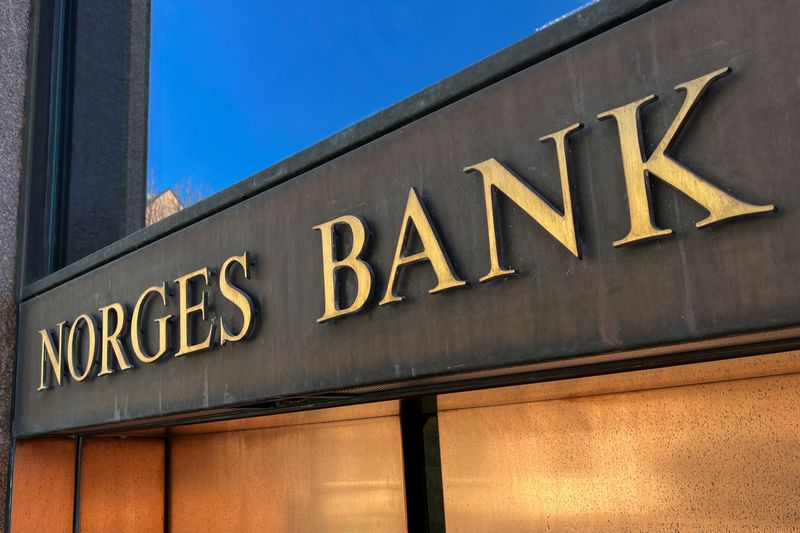OSLO (Reuters) - Analysts are divided over whether Norway's central bank will continue to raise interest rates this week, with a narrow majority predicting an unchanged cost of borrowing, a Reuters poll showed on Monday.
Of 27 respondents, 15 economists predict that Norges Bank will keep rates on hold at 4.25% on Dec. 14, while the remaining 12 participants forecast a hike to 4.50%.
Markets are only pricing in a 10-15% chance of a hike, however, analysts said, as a dip in November inflation added to other recent weakness in the economy.
The central bank last month kept its benchmark interest rate on hold and said it would likely raise the cost of borrowing in December unless its monetary policy makers become "more assured that underlying inflation is on the decline".
Consumer price data has since showed that October inflation exceeded expectations while prices in November were somewhat lower than expected.
Core inflation stood at 5.8% year-on-year in November, down from 6.0% year-on-year in October, lagging analysts' average expectation of 6.0% and the central bank's 6.1% prediction but far exceeding the medium-term goal of 2.0%.
The Norwegian currency has been weaker than expected by the central bank, however, which could again ignite consumer prices.
A business survey commissioned by the central bank recently showed that Norway faces unchanged economic activity in the fourth quarter of 2023 and a likely decline in the first three months of 2024.
All Norwegian industries expect economic developments to weaken in early 2024 compared to current activity, according to the survey, which is a key input for the central bank's monetary policy committee.
As a result, rates are likely to stay on hold, Handelsbanken wrote in a note to clients.
"The growth signals for the economy have weakened, showing an economy on the brink of a technical recession; again, on the downside of Norges Bank's expectations," it said.

The rate of 4.25% is also likely to mark the peak of the tightening cycle that began in September of 2021, while a first rate cut was seen in the fourth quarter of 2024, followed by additional reductions in 2025, the poll found.
The European Central Bank, the Bank of England and the U.S. Federal Reserve are all expected to keep rates on hold this week.